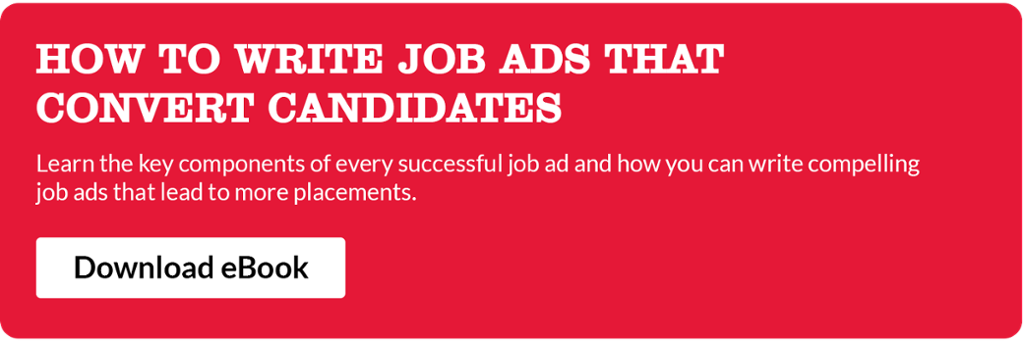Imagine this – you’re a candidate looking for a job. You browse through hundreds of adverts, fill out tons of applications, and scroll for hours trying to find that one job that will sound better than your current one. But by the time you’ve read about “An exciting opportunity with a dynamic company” for the twentieth time in an afternoon, you might be closer to throwing your laptop out the window than finding your dream role.
Whether you want to admit it or not, we all made the mistake of writing repetitive job ads before. It’s quicker and easier – but in today’s ever-changing market, it might simply not cut it. In order to get that top talent, you need to appeal to your candidates and make the role sound unique (even if it’s not all that unique).
Here are some of my top tips on creating an ad that screams ‘Pick me!’ to candidates – and trust me, it’s not as hard as you might think!
Irresistible structure
An advert needs a structure – ground-breaking! But the truth is, way too many adverts follow the same pattern of copy-pasting job specifications and making the entire copy one, long chunk of text. Spoiler alert – nobody’s going to read that. People are drawn to things that make their life easier, not harder. Reading a page-long essay about the qualifications needed for the role and the amazing company ethos is hard, especially if that’s what they’ve been doing all day. Make sure the layout of the advert is easy to skim-read: have small paragraphs, use short sentences, sub-headings, and bullet points. Throw in a few emojis, too (if the role is suitable)! They will make the copy more appealing and modern. You’d be surprised how many young professionals click on adverts just because they have a fun, modern structure.
So, step-by-step, this is how your advert should flow – a good, specific heading that sums up the role. What is more, in today’s world headings aren’t just meant to attract the candidate – they also serve SEO purposes. You have to consider what keywords candidates are using instead of just making your heading sound appealing.
Then – location. The location of the role is the second most crucial part of your ad, right after the heading. In modern times, over 53% of the applicants are highlighting that the ability to work from home at least half of the time is important. And if your client doesn’t offer that luxury? Well, the more specific you can be, the better.
Next, salary – the elephant in the room. The salary bracket is the clearest indicator of a job’s seniority level, and it’s the next piece of information that the candidate will look for after your headline. Stating the salary as ‘competitive’ is just likely to get you fewer applications in (many candidates will immediately assume the salary is too low) and make your workload much bigger, as you’ll be sifting through lots of CVs from people who aren’t the right fit.
Finally, a list of responsibilities for the role, all the needed qualifications, and the list of benefits (you want to end your ad with something sweet).
Don’t forget to include a clear ‘How to apply’ section and contact details.
Present a challenge
One of the most effective methods of drawing the top candidates in is presenting the role as a challenge. For example, if your client is looking for a marketing manager who will increase the number of leads by 20% - simply say so. This will cut out all the people who aren’t suitable for the role – because if the challenge scares them rather than excites them, it means your client most probably wouldn’t be happy with their performance anyway. The ambitious, experienced, and motivated people will come through – and your job will be a lot easier.
Just make sure not to present them with a list of impossible requirements – it’s meant to sound exciting, not overwhelming!
Know your audience
When it comes to writing great copy, you have to know who is going to be reading. Think about the model candidate for the role you’re advertising – or better yet, create candidate personas! Then target your language to them – if it’s a graduate role, emojis, and light, informal language will probably speak to them more than a list of professional requirements. If you’re recruiting for a senior position, however, you’ll have to adjust your copy accordingly. Use industry-specific phrases and don’t be afraid to present the challenge – after all, you’re after an ambitious expert!
To learn more about writing the best job adverts that bring you candidates, have a read of your eBook below:
Martha Kosmider
As a Senior Marketing Executive, Martha keeps all our written content on point, sharing the latest tips and updates from the recruitment industry.




